SMART HARBOR-APPLICATION RENEWABLE-INTEGRATION CONCEPT
Überseehafen Bremerhaven – International port as model region to be supplied with 100% renewable energy
Project Location
bremenports is the managing company of the port infrastructure and decided already in 2014 to operate its own port infrastructure completely CO2 neutral by 2023.
The SHARC project will look at the whole international port region as an industrial quarter with the aim to map the energetic landscape of the area. SHARC’s main objective is to analyze the largest energy consumers within the port area, thus the majority of the total energy consumption will be considered.
SHARC – short for Smart Harbor-Application Renewable-Integration Concept – is a project that aims to pave the way for a CO2 neutral international port in Bremerhaven. For this purpose, there will be an investment concept and business plan as project outcome, thus the identified measures and investments can be implemented in a succeeding project.
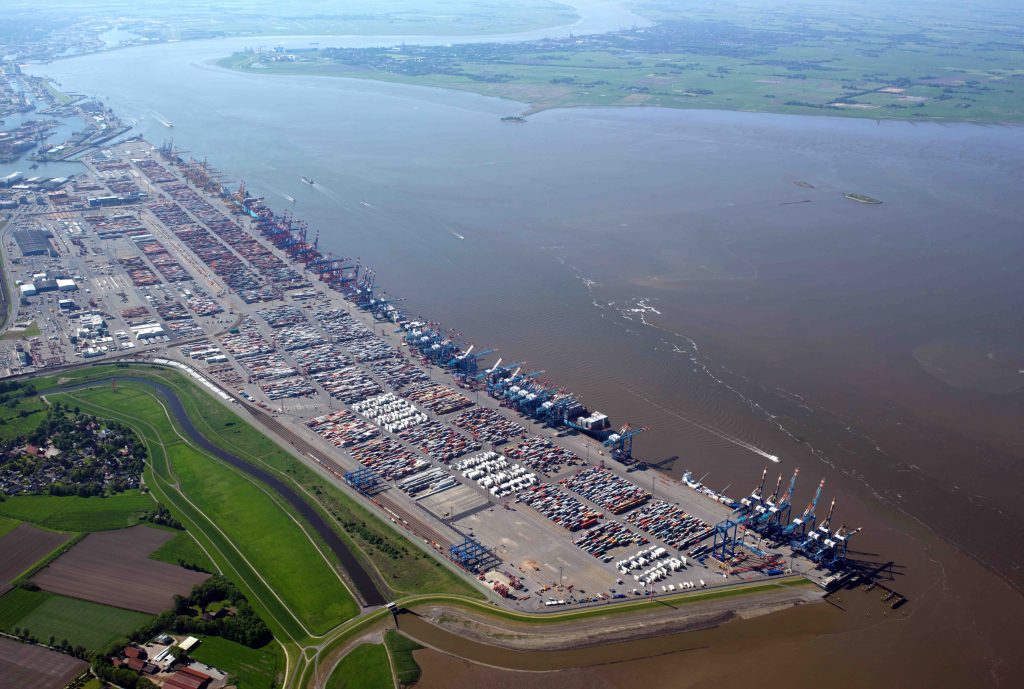
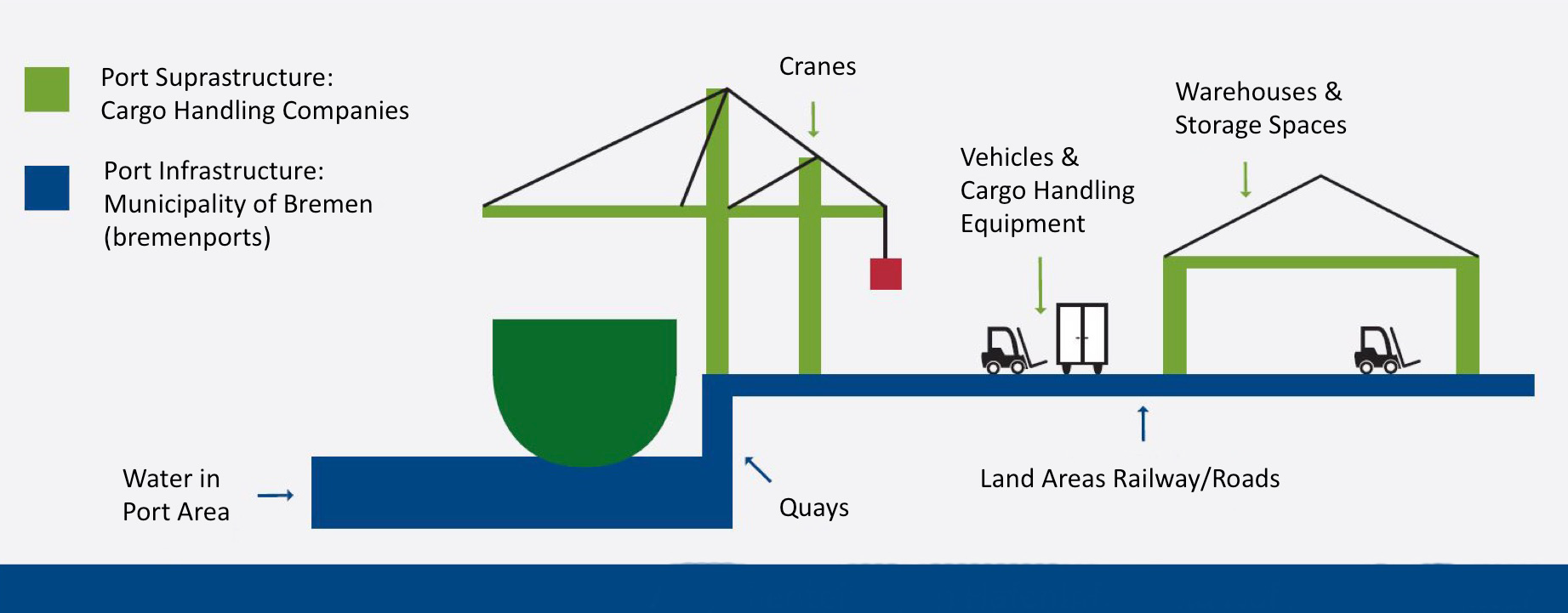
Project Location
Most of the European ports are operated as landlord ports, which means that the public authorities lease terminal areas to companies that independently operate the respective areas.
The bremenports GmbH & Co. KG is 100% publicly owned by the Free Hanseatic City of Bremen and via agency agreements responsible for the management, maintenance and development of the port infrastructure.
The respective infrastructure includes mainly quays, berths, bridges, locks and smaller operational offices. The operational activities are carried out by independent companies that handle the cargo with their own equipment.
The aerial image below shows the geographical expansion of the project area, which includes the container terminal, the RoRo terminal, several cold- and storage facilities, as well as the above mentioned infrastructure.
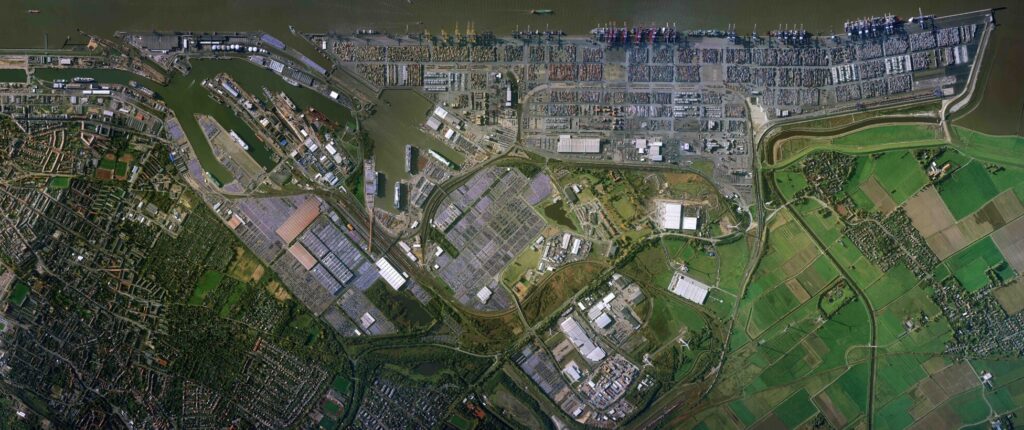
Project Partners
The project consortium consists of five project partners, namely: bremenports (project board), Siemens, Technical University Berlin, The Institute for Energy, Recycling and Environmental Protection at University of Applied Sciences Bremen (IEKrW) and the German Research Center for Artificial Intelligence (DFKI). Subcontractors to the project are the terminal operators Eurogate Container Terminal Bremerhaven and BLG Autoterminal Bremerhaven, thus the major energy consumers concerning container and RoRo handling are involved in the project. Furthermore, Eurogate Technical Services is the local grid operator and to a certain extend also energy provider, which is why they are also subcontractors to the project.
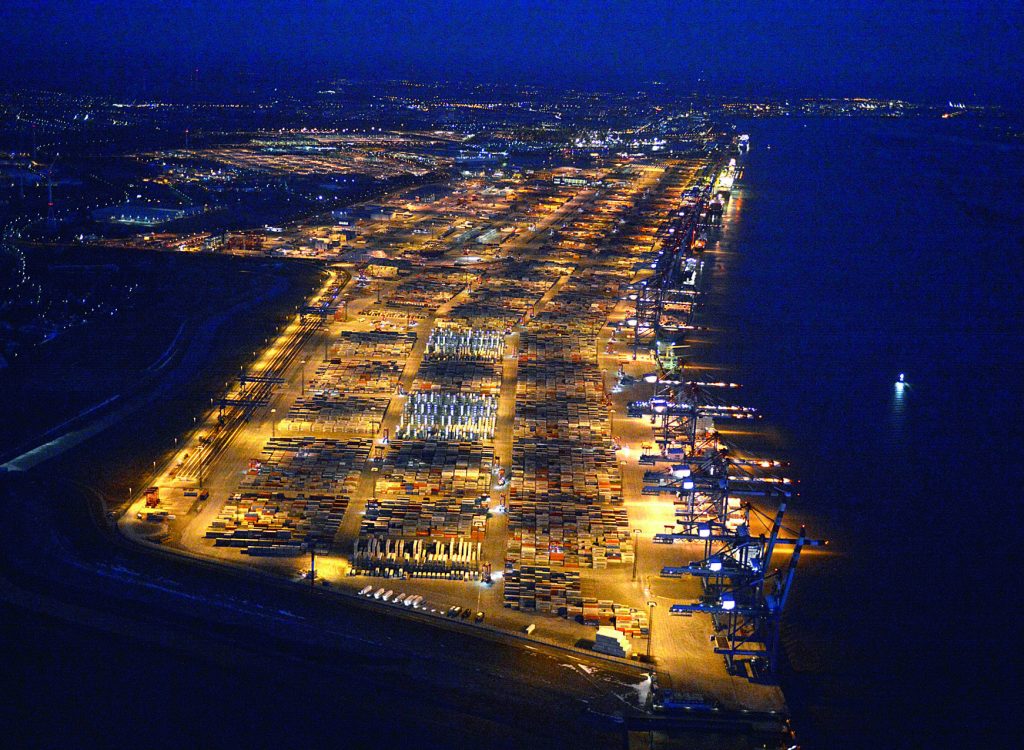
Throughout the start of the project two more logistics companies (cold storage operators) – Kloosterboer BLG Coldstore and Heuer Port Logistics – were willing to participate in the project by providing energy consumption data.
SHARC I – Analysis Project
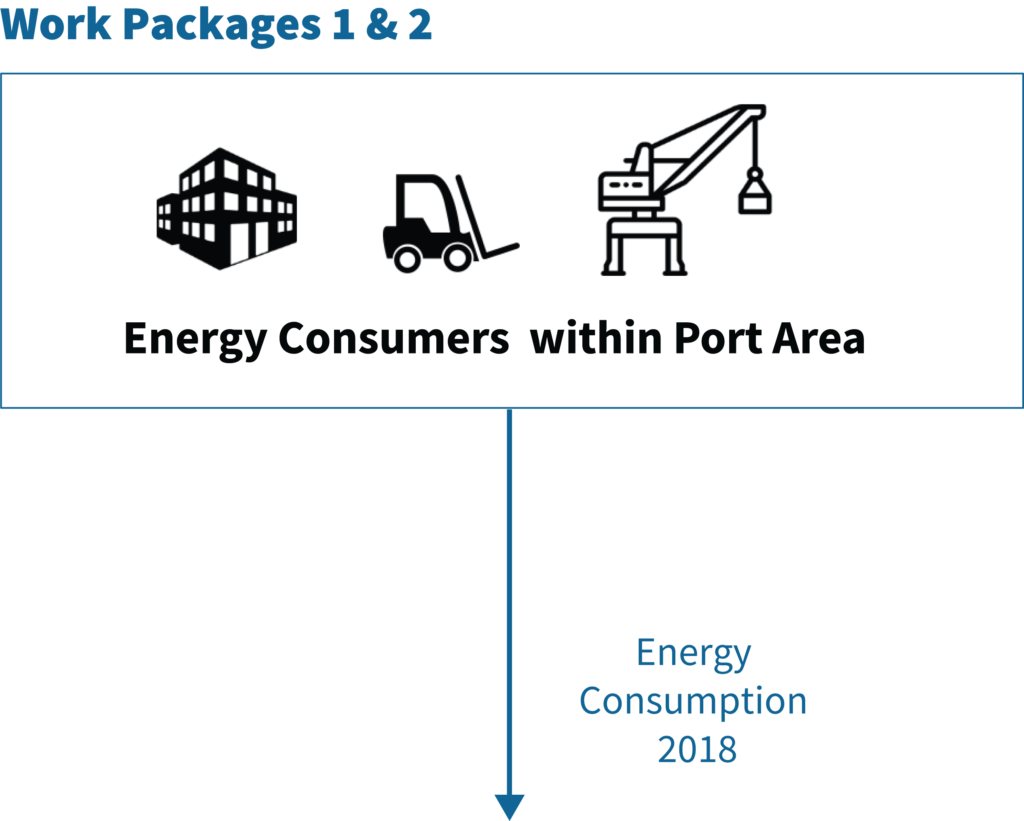
The project team gathers all the relevant energy consumption data from the involved participants and is about to analyse those data. The data is not limited to solely electricity consumption, but also heat, cold and fuel consumption – primarily Diesel.
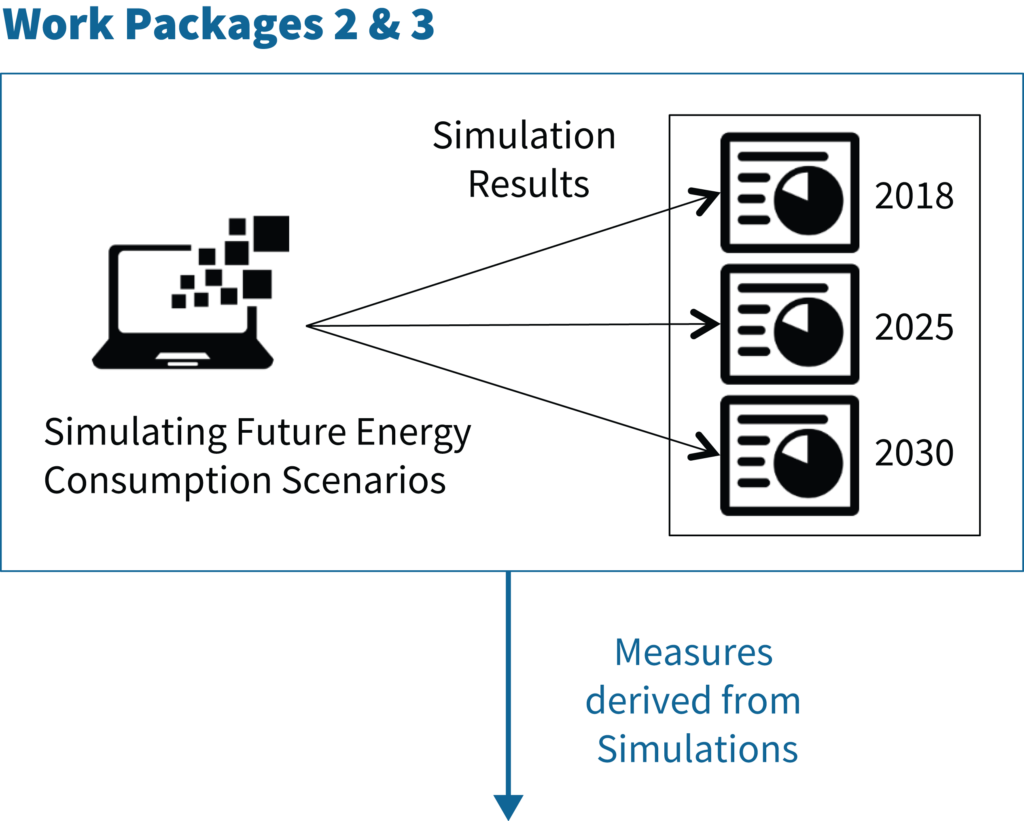
Those data will be loaded into two independently developed simulation tools – one tool developed by Siemens and the other one by TU Berlin – to project future scenarios. In order to allow the results to be as realistic as possible, certain parameters and assumptions, e.g. the development of cargo handling numbers, the development of the CO2 price, development of energy prices, etc., have been made prior to simulating. The data from 2018 will be used as basis and by utilising the assumptions and parameters the simulations shall give an outlook to the years 2025 and 2030.
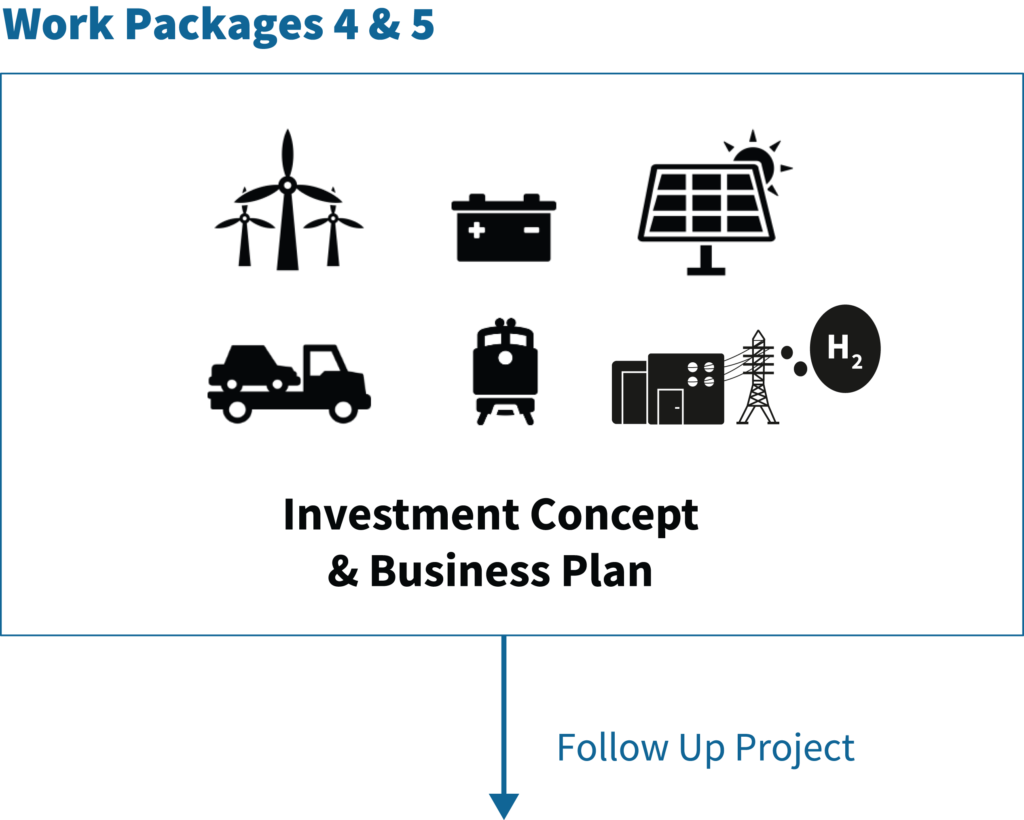
Together with all involved parties the results from the simulations shall be used to develop measures that foster the integration of renewable energies in the energetic landscape of the port area. Those measures will be summarised in an investment concept and a business model and are expected to be implemented in a subsequent project from 2021 onwards.
First Findings
Based on the energy consuption data analysis from the basis year 2018 the following energy flow chart was developed. The diagram illustrates the energy source used for the respective sektors and the resulting CO2 Emissions.
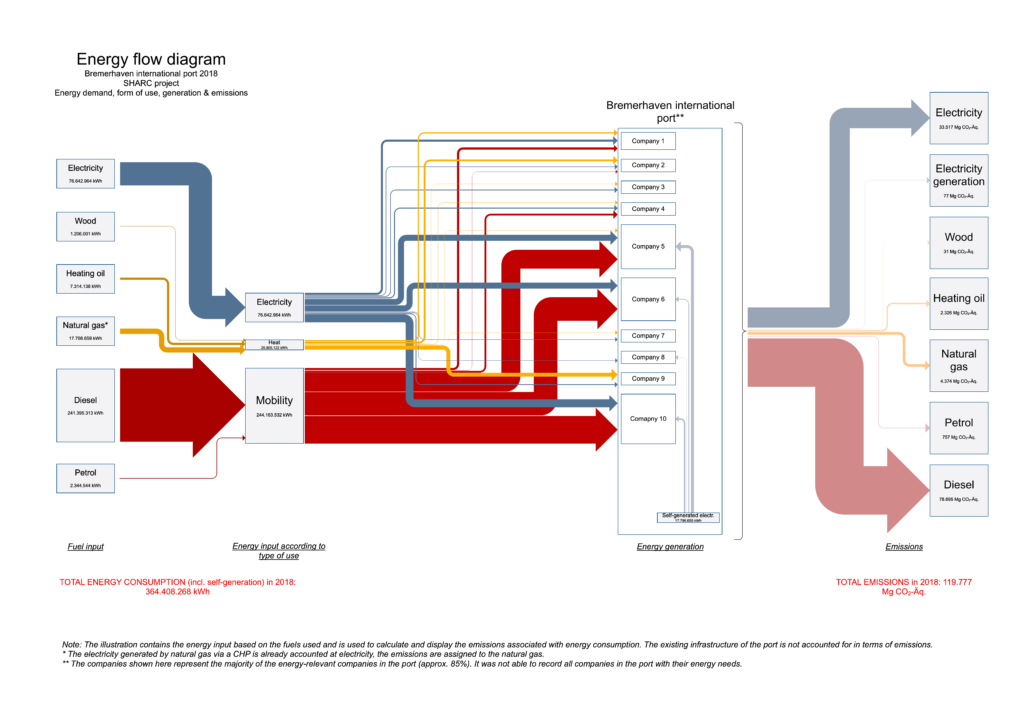
The analysed data is the foundation for the ongoing (December 2020) simulations, that will result in a future projection of the ports possible energy supply landscape.
As soon as the results are processed, updates will be published here.
SHARC II – Implementation of potential Measures
SHARC II – Umsetzungsprojekt / Mögliche Maßnahmen
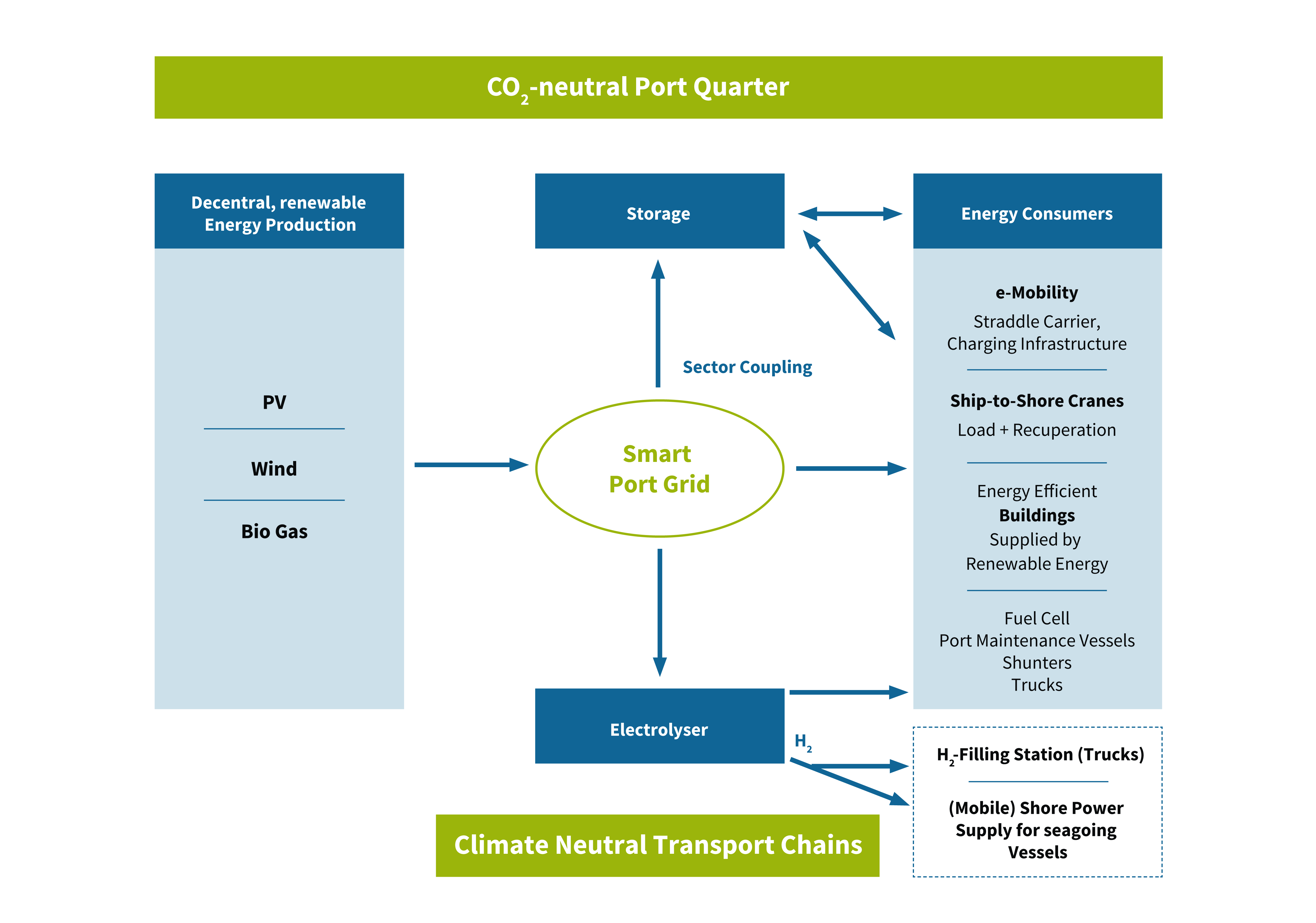
There are several ways to reach the goal of a CO2 neutral port, however, the supply with renewable electricity is one of the most important factors. At the moment the proportion of renewable electric energy in the ports grid is a little more than 50%. This share shall reach 100%, whereas the energy shall be produced locally, if possible, within the region of Bremerhaven. Due to this fact a cost-benefit analysis will be conducted where in the closer port surroundings and to what extend it might be possible to install wind energy converters (WEC) and/or solar power plants, that solely cover the ports energy needs.
As it is the most efficient way to use electricity directly, without converting it (e.g. Power-to-X), the project will also investigate whether there are possibilities to convert the operation of logistic-handling equipment, e.g. straddle carriers or reach stackers, to full electrical mode. Furthermore, it will be investigated to what extend a surplus in renewable energy production can be used for the production of hydrogen.
However, some of those applications that cannot be converted to electrical operation, e.g. shunters or in-port transportation, could prospectively be converted to using hydrogen as energy source.
The above-mentioned potential measures are just exemplary exempts of current ideas.
Soon we will report about first results and the consequential next steps.
PROJECT STRUCTURE
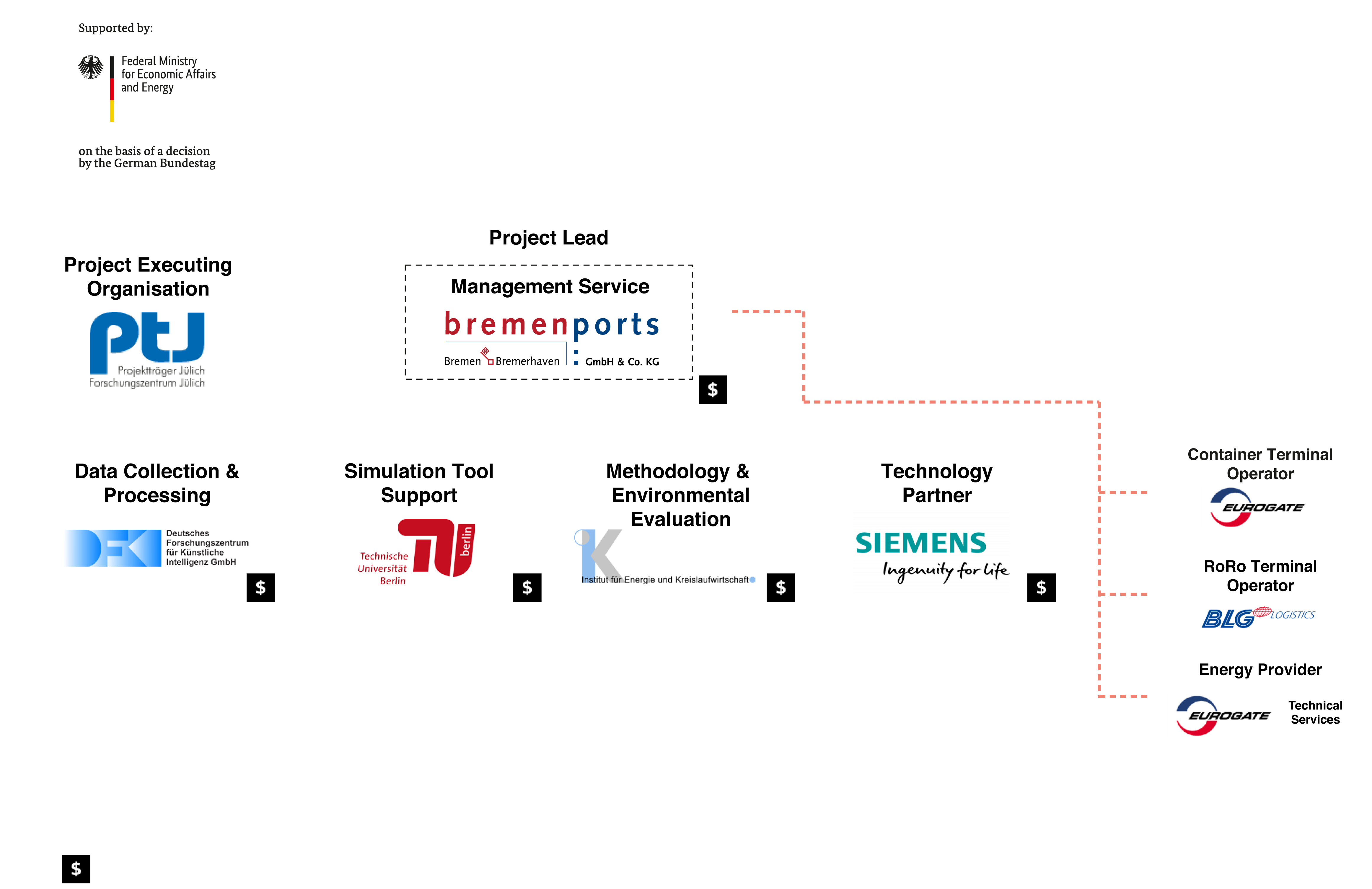
PROJECT PARTNERS


The bremenports GmbH & Co. KG is 100% publicly owned by the Free Hanseatic City of Bremen and via agency agreements responsible for the management, maintenance and development of the port infrastructure in Bremen and Bremerhaven. Around 400 employees are available in order to provide a 24/7 port availability.
Since 2009 bremenports’ sustainability strategy “greenports” aims to provide in integrated treatment of ecological, social and economical aspects.
bremenports took on the project lead for the SHARC project and thus is responsible for the substantial project goals, as well as coordinating and planning activities.
bremenports’ project goals are essentially congruent with the overall goals of the project. Especially for the port quarter “Überseehafen” in Bremerhaven the integration of renewable energy sources in the port infra- and suprastructure, as well as the operational processes, needs several future scenarios in order to prepare and organize the specific implementation.
Contact Project Management
Sabine Müller
bremenports GmbH & Co. KG
– Umwelt & Nachhaltigkeit –
Energy Management Representative
Am Strom 2
27568 Bremerhaven
GERMANY
Phone: +49 471 309 01-145
Fax: +49 471 309 01-532
Contact Project Organisation
Tobias Metzner
bremenports GmbH & Co. KG
– Umwelt & Nachhaltigkeit –
Am Strom 2
27568 Bremerhaven
GERMANY
Phone: +49 471 309 01-134
Fax: +49 471 309 01-532
Mobile: +49 160 92122706
tobias.metzner@bremenports.de

The Institute for Energy, Recycling and Environmental Protection at Bremen University of Applied Sciences (IEKrW) was founded in 2000 and is an example for public-private-partnership in the field of applied research and development (R&D). As a SME it serves as a transfer point between science and industry.
The aim of the Institute is the development of ecologically and economically useful solution concepts for concrete questions in recycling technology and environmental protection. The chief task of the Institute is the development of processes and concepts to enable the recycling and cycle management of substances, the efficient use of raw materials as well as the purification of waters, sludge, solid waste and exhaust air as well as the analysis of the associated markets.
In the context of the project the IEKrW addresses amongst others the identification and recording of operational processes with relevance to energy consumption, environmental assessment, methodical evaluation of simulation results and the development of business models.
Contact
Institute for Energy, Recycling and Environmental Protection at Bremen University of Applied Sciences GmbH
Neustadtswall 30
28199 Bremen
GERMANY
Phone: +49 421 5905-2326
office-iekrw@hs-bremen.de
www.iekrw.de
Prof. Dr. Martin Wittmaier
Phone: +49 421 5905-2326
wittmaier-office@hs-bremen.de
Dipl.-Geoökol. Sebastian Wolff
Phone: +49 421 5905-2430
sebastian.wolff@hs-bremen.de
Dipl.-Ing. (FH) Marco Wöltje BSc (Hons.)
Phone: +49 421 5905-2420
mwoeltje@hs-bremen.de

The German Research Center for Artificial Intelligence (DFKI) GmbH was founded in 1988 as a non-profit private research and technology organization (RTO). The DFKI has locations in Kaiserslautern, Saarbrücken, Bremen, Osnabrück, Oldenburg and Berlin. With more than 1000 employees and students, DFKI is one of the leading RTOs in Germany in the field of innovative software technologies and robotics based on methods of artificial intelligence.
In Bremen, the DFKI Robotics Innovation Center (RIC) employs an interdisciplinary team of close to 100 scientists, engineers and technicians. In addition to robotics and artificial intelligence, DFKI RIC is active in the area of electromobility and smart energy systems. Concepts and systems for intelligent decentralized load management that were developed here will be evaluated in the SHARC project.
Contact
Thomas Vögele
Phone: +49 421 17845-4130
thomas.voegele@dfki.de
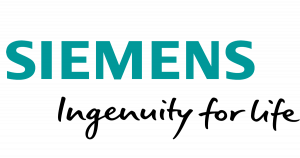
Siemens Smart Infrastructure offers solutions for intelligent, adaptable infrastructure for today and for the future. These address the pressing challenges of urbanization and climate change through the connection of energy systems, industries and buildings. The focus of the SHARC project is to operate the port as CO2-neutral as possible. As a technology partner, Siemens supports this goal with the simulation-based development of various scenarios for decentralized energy supply solutions. These not only allow the integration of the highest possible proportion of renewable energy, but also, through sector coupling – the intelligent networking of energy (electricity, heating, cooling), industry and mobility – also a holistic sustainable operation of the port. Siemens offers various implementation models here – from the mere installation of a decentralized energy solution, through maintenance and operation, to complete coverage of the topic of energy: Energy-as-a-Service.
Contact
Sajjad Khan
Phone: +49 172 8148610
s.khan@siemens.com

With around 33,500 students and 40 institutes, Technische Universität Berlin is one of the largest, internationally renowned and traditional technical universities in Germany. The chair of Sustainable Electric Networks and Sources of Energy (SENSE) supports the necessary transformation of the energy sector through application-oriented research and pooling of cross-competence resources on both a technical and economic level.
Research at SENSE focuses on modeling future-oriented energy supply concepts that are characterized by sustainability, cost-effectiveness and robustness.
In the SHARC project, TU Berlin creates modules for port-specific system components and environmental data (multi-criteria optimization), integrates them into an existing tool for optimized planning and operation of sector-linked energy systems, and on this basis, calculates the optimal energy concept variants for the various development scenarios.
The knowledge gained in the project will be used, among other things, to expand the SENSE Smart Grid Laboratory with functionalities, with special attention to consumer loads providing shifting potential and process-integrated virtual storage.
Contact
Technische Universität Berlin
– Fak. IV | Institute of Energy and Automation Technology –
Sustainable Electric Networks and Sources of Energy (SENSE)
Einsteinufer 11 (EMH-1)
10587 Berlin
GERMANY
www.sense.tu-berlin.de
Christian Wiezorek
Phone: +49 30 314-75814
christian.wiezorek@tu-berlin.de
